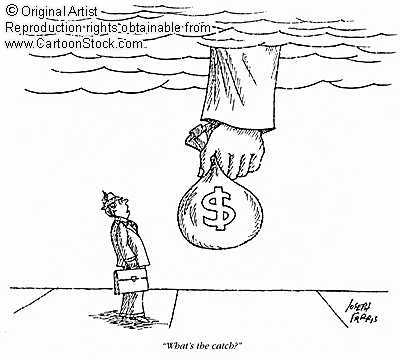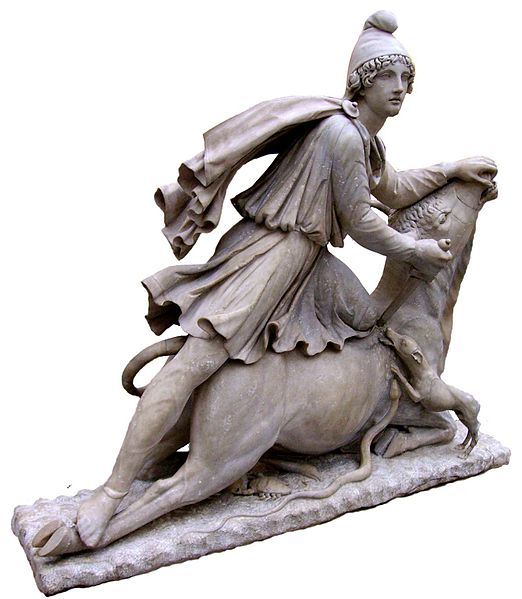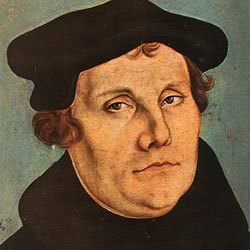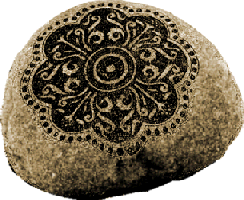
Agriculture marked a turning point in the path of humanity. Essa fu il passaggio dal puro sfruttamento delle risorse naturali alla guidata produzione dei mezzi di sussistenza. L’agricoltura ebbe origine quando si incominciò a rendere permanente la coltura di alcune specie vegetali.
Il passaggio, dal puro sfruttamento delle risorse naturali all’agricoltura, provocò un aumento dei prodotti alimentari disponibili.
L’agricoltura passò attraverso a due fasi.
La prima consistette nell’interrompere periodicamente la cultura per permettere alla terra di ricostruire la propria fecondità durante una pausa di riposo.
La seconda consisteva nel rivoltare la terra prima della semina. Questa fase di lavorazione agricola si iniziò verosimilmente seimila anni or sono.
From that time agriculture was developed as the best method of subsistence, together with experimental procedures transmitted by the collective wisdom from generation to generation.
on this system were built all civilizations.
human groups, formed initially by a few families, in order to practice agriculture, they became non-permanent move away from the lands has to wait for the harvest of crops.
A sedentary lifestyle and increasing means of nutrition led to an increase in the number of the population. The groups gave a permanent boost to the construction of shelters. The houses were built close together for the proximity of cropland for ease of defense.
The defense, especially against other men, was necessary because it is innate in the concept of depredation to others.
Mesopotamia was one of the earliest cradles where they started the development of agriculture.
Four thousand years before the birth of Christ in these lands are settled the people of Sumer, perhaps originating from a mountainous area of \u200b\u200bCentral Asia. Like all peoples in settled agricultural groups, and the fertility of the soil allowed the growth of their numbers.
were formed of the cities that are administered individually and in perpetual struggle between them.
The environmental situation in Mesopotamia was alluvial, subject to disastrous flooding caused by two rivers: the Tigris and Euphrates. From the fourth millennium BC were performed major renovation of the soil to increase fertility and the extension of arable land.
These works are evidence of strong central powers.
These powers are reflected in the structures making up the core of the city-state. The religion of the Sumerians had the character of agrarian societies, the concept of polytheism marked with sacred kingship The political organization of cities was based on the monarchy, but this was a theocratic function, the true lord of the city was the God and the ruler was only the temporary administrator. Each city had
your God, the basic concept was born "every people a god." Before the institution of monarchy in the government of the city there were citizens of these tips are only found in the initial period of the Sumerian civilization. The Sumerians were the first to invent writing, the early writings of 3200 BC, were found on clay tablets written and then dried in the sun. The writing was called cuneiform signs summarized in the shape of the wedges because of the material used to write, a reed stylus cut wedge on top. The writing was based on the numeric characters, beginning about 2000, there were signs, later reduced to 600.
The Sumerian language was agglutinative as the Hungarian, but was not close to any of the existing languages.
In this language seems to know the tone as the Chinese language. Some Chinese scholars argue that writing comes from the Sumerian. Have been found thousands of clay tablets written. They appear as historical documents, religious poems, laws, legends and were also found tablets bearing the indication of a value equal to the current bills, credit documents or certificates of debt. Also found were cylinders of stone or copper bearing of the writings and figures out that rotated on fresh clay tiles imprinted designs and writings
The Sumerians built their times and their brick houses. The clay was the basis for building, but not perfect since the firing of brick buildings, though monumental, were destroyed.
is why the Egyptian culture has a greater following, the Egyptians built with stone and their remains could challenge the attrition of time and impress most historians.
bricks have been found with measures equal to those currently being manufactured. After thousands of years have been preserved in the culture of the peoples of these measures.
But the great Sumerian heritage through the ages is that which states "every people a god." Anyone who was involved in the Sumerian culture, it was close to it or it was influenced considered this approach as an integral part man. Participation in a people brought automatically numbered among the believers of the God worshiped.
Religion is the common thread of every community, people living in requires a right to accept its culture and, consequently, to profess his religion. The Sumerians had
for each city its own God, they were polytheists. The policy was a big help to the growth of the culture of the people, every human being is born into a nucleus a worshiper of God, but for various reasons it did not identify, was not a prisoner of cultural behavior, had the opportunity to look to a deity or other online behavior to other more suitable to his nature. In
Thus no man was born a prisoner of a culture, but its choice, without being traumatic, allowing a greater transfer behavior and therefore this cultural mobility allows a greater selection of modes of sociality.
The Sumerian civilization began in 4000 BC, went through some periods of ups and downs, the first period of crisis occurred with the invasion of Semitic peoples between 3100 and 2850 BC. Later there was another invasion Semitic between 2675 and 2600 a. C.
Since 2093, Shulgi the king, the king ruled over in the name of God, but they themselves were deified.
In 2003 BC the Sumerian civilization ceased permanently due to the Semitic invasions.
The Semitic peoples, for their part, assimilated the fundamentals of Sumerian thought.
In the holy book of Jews, Semitic people, there are, in the early parts of the narratives of events and cultural references copied almost entirely from the writings found in Sumerian clay tablets discovered by archaeologists.
In the period following the end of the digital culture, (2003 BC), many groups abandoned the Semitic Mesopotamia. Among these groups there was Abraham, a Semitic son of a priest named Terah, an expert in divination reading of the entrails of sacrificed animals.
The greatness of Abraham was in describing his team and his descendants belong to a people, and this avrebbe avuto un Di come vuole la filosofia sumera.
Leggendo i primi libri della Bibbia si nota la ripetizione, in modo ossessionante, che il popolo ebreo discendente da Abramo ha un suo Dio, nessun appartenente a questo popolo è autorizzato ad adorarne un altro.
In più punti nella Bibbia viene incitato il popolo ebraico ad abbattere gli altri Dei.
Nel Pentateuco si sente l’influenza del pensiero sumero, all’inizio si ammonisce a non adorare altri Dei dichiarando una ostilità doverosa in quanto falsi e perché il popolo ebreo ha firmato un patto con il suo Dio
Conseguentemente se tutti gli altri Dei sono falsi, quello del popolo ebreo è l’unico vero.
Considerato valido il concetto “un people a god, "God jew being the only true God, the descendants of Abraham are therefore predestined to be the chosen people. The
a people to believe the existence of one God was not an easy task.
The naturalness of different divine entities believe makes people more flexible and allows him to embrace a religious setting behavior resulting from the choice depends on the deity. At the same time, leaning against a god does not create religious problems as all the gods in polytheism, even if they have the same dignity into the human imagination can have different power and consideration.
A people if you want to remain united with the sua cultura e sia determinato deve credere in un solo Dio.
In tale modo vi è una unicità di insegnamenti ed imposizioni culturali, diventano meno accettabile le unioni con appartenenti ad altri popoli in quanto creano metodi comportamentali differenti.
Durante il declino della cultura sumera si era affermata la civiltà egiziana, nata 3000 anni a. C.
Come i Sumeri avevano creato la loro civiltà grazie ai due fiumi: il Tigri e l’ Eufrate, così gli Egiziani crearono la loro civiltà grazie alla fertilità dei terreni determinata dall’inondazioni del fiume Nilo.
La loro civiltà creò una ricchezza immensa e si inizio a costruire monumenti e vestigi importanti.
Le loro costruzioni erano in stone, but this is not easy to obtain, transport and are easily available.
wealth enabled the Egyptians to increase in number and to build many houses. The Egyptians passed the stone use in construction to that of clay bricks.
from areas inhabited by the Sumerians came versatile people in the manufacture of bricks. The Sumerian civilization was over and the Semitic invaders moved to Egypt.
These Semites were many people belonging to the jew started with Abraham. A man
nomenclature, Moses, raised in the court of the pharaohs, because emarginatosi stutterer, was able to prove that they belong to the Semitic people involved in the manufacture of bricks.
Following a series of disastrous events, the people of Egypt's economy underwent a serious crisis, the construction of homes declined, leading to lower consumption and the manufacture of bricks.
At the head of these workers began Semitic and Moses led them to search for another land. Moses imposed by these workers of the clay to create a nation using religion and its God preached by the founder Abraham lived about 600 years ago. It was not an easy task, the man hardly takes a unique set of regulations and culture.
to impose monotheism Moses was able to keep workers with the windfall. Their children, in the 40 years of service, educated from childhood cultural uniqueness of one God become a majority, strengthening the cultural background of the new people.
Moses had to resort to mass murder killing (Exodus 32) who did not accept the approach of monotheism. This goes to show how many massacres must be made to enforce the one God.
Monotheism was necessary to do so would impede the ability to worship other gods, to avoid the occurrence of different behavioral cultures.
The difference of culture becomes a disruptive element in bringing people to split into different groups according to the religious multiplicity created by the God
monotheism had to satisfy the imagination of the believer, la impossibilità di cambiarlo era compensata con l’immagine di un essere superiore, giusto, inflessibile verso chi lo tradiva.
La intolleranza divina serviva ad installare un concetto di superiorità al popolo, questo conseguentemente diventava intollerante, duro e vendicativo come il suo Dio, la cui giustizia diventava l’alibi per il comportamento - occhio per occhio- e - dente per dente-.
Il Dio del monoteismo era l’unico depositario della giustizia, e in nome di essa è vendicativo verso coloro che lo negano.
Purtroppo il monoteismo era originario di intransigenza, il politeismo in qualche modo, anche se non in modo eclatante, invece era maggiormente accondiscendente
Tuttavia l’intransigenza non is entirely negative, a people to survive should be combative, strong with others and must be justified even when it behaves toward the murderous adversaries.
No people and no culture can exist if it is unable to defend themselves in a bloody manner.
Certainly the defense can border on abuse, although there is a religious excuse. The monotheistic people, despite his intransigence, could fuel the hatred of his bitter enemies.
Monotheism is certainly the best way to provide a huge force of survival to the people it professes, but there is a downside, the never forgive, which is the negation of looking for some mediation, porta a problematiche esistenziali.
Se non si accettano gli altri popoli, si determina la convinzione come gli altri esseri umani non possono avere uguali diritti, non appartenendo al popolo di Dio.
La distruzione degli altri Dei può creare una continua manifestazione di opposizione e di odio da parte di altri popoli.
Se la coltura di difesa di un popolo; alimentata da un giustificato motivo e plausibile concetto di superiorità; è continuamente applicata, alla fine può portare alla distruzione del medesimo condizionato da una religione intransigente.
Questo problema affiorò nel popolo ebraico. Questi dovette giustamente, per difendere la sua assoluta integrità, combattere in continuo fino ad essere assoggettato dall’impero Roman.
In the clash between the Roman and Jewish cultures became evident the problem of religious intolerance as a negative aspect.







